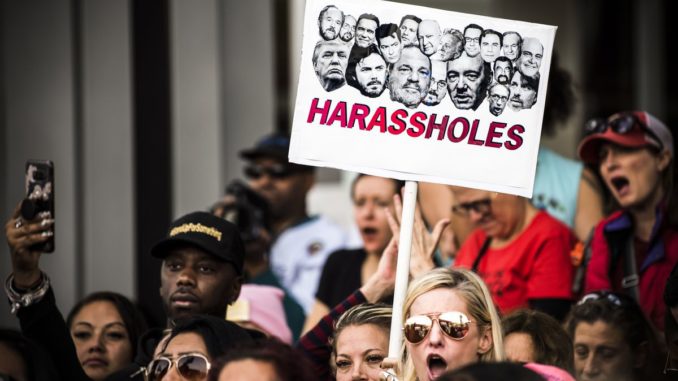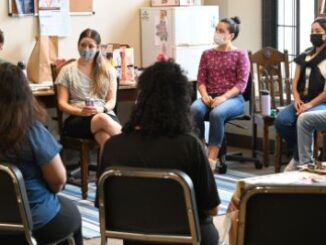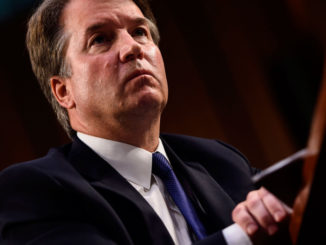
Katherine Carper
Contributing Writer
10/16/18
Women across the country are coming forward with their stories and experiences with sexual assault and are facing drastically different responses. Some say they are lying, some believe their stories, and others aren’t sure what to believe.
During the second wave of feminism in the 1970s, women fought against sexism in the workplace, the right to their own bodies, and addressed the fact that these issues happened to all women, regardless of skin color.
Today the battle is still being fought with movements such as the #MeToo
movement and the #whyIdidntreport trend happening on Twitter. On average, there are “293,066 incidences of sexual assault in the U.S. each year” according to Resilience: Empowering Survivors. Ending Sexual Violence.
Despite this we see several men achieving success regardless of the claims made against them.
It only takes a quick Google search to find the evidence. We saw it happen in 2016 with the most recent presidential election when Donald Trump managed to win 30 states and the presidency despite several claims against him for sexual assault and misconduct, as well as evidence such as video recordings of his less than tasteful comments about women, according to The New York Times.
In an audio clip from NPR in 2016, Sarah McCammon informs listeners that “several women have come out… saying that Trump groped or kissed them without permission”
In a New York Times article, readers are presented with a transcript of several video and audio recordings of Trump making lewd comments about women such as “I just start kissing them. It’s like a magnet. Just kiss. I don’t even wait.” or “Grab ‘em by the pussy. You can do anything”. There are many more comments that can be found similar to these.
More recently, Americans have watched as the same thing has happened with Judge Brett Kavanaugh and his Supreme Court nomination by Trump. When Judge Kavanaugh was nominated to the Supreme Court, Dr. Christine Blasey Ford, a psychology professor at Palo Alto University, came forward with her story of how Kavanaugh sexually assaulted her when they were in high school, according to Meg Anderson, a writer for NPR.
Ford told her story to the world, a story which she felt was her civic duty to share, in a hearing on Sep. 27.
She stated that “an inebriated Kavanaugh forced her onto a bed, groped her and tried to remove her clothes”. (Naylor & Seipel) Since Dr. Ford came forward, two other women have come forward with allegations as well. One is Deborah Ramirez
who attended Yale University with Kavanaugh, states that he “exposed himself to her while drunk at a party”. The other woman to come forward is Julie Swetnick. She also “witnessed drunken behavior from Kavanaugh at parties in the early 1980s” during which she saw him “pressing himself against girls without consent among other things”. After the hearing where Dr. Ford presented her story, and a short FBI investigation, Judge Brett Kavanaugh won the Senate vote 50-48, and was sworn into the Supreme Court on Oct. 6.
If comments similar to those Trump made were said by a candidate that was a woman, or that candidate was accused of sexual assault, they likely would not get away with it as Trump did. So why do people look the other way when a male candidate says these things? It all comes down to power and privilege, and it’s no secret that men have it.
In our current Congress, only 20.7% of its members are women, according to Senior Research Librarian of the Congressional Research Service Jennifer E. Manning. While not all men vote for those who have committed or have been accused of committing sexual assault, men still have the power to support whatever candidate that they feel represents their values and agendas, regardless of what actions that candidate has performed because they have the votes.
They have the votes to make decisions about women’s healthcare without consulting women. They have the votes to decide if a man who has had multiple accusations of sexual assault against him should be allowed to sit on the highest court in America for life.
These men have power because Americans gave it to them. There is evidence upon evidence that sexual assault is an issue in our society, and as Americans it is our job to change that. How can we say that our nation is the land of the free if we don’t vote in government officials that treat everyone equally regardless of their gender? By exercising our right to vote and by educating not only ourselves but others about what sexual assault is and how serious it is, we can start to change the narrative.
kcarper@my.dom.edu



